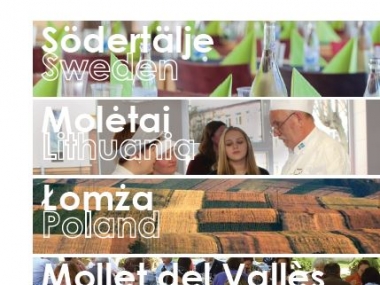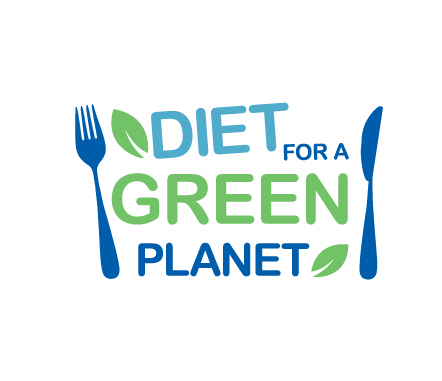Beyond our expectations! Final report from Diet for a Green Planet
Edited on
27 June 2015The results achieved during the Diet for a Green Planet project is truly amazing. In a short time, substantial changes have taken place in all partnert cities, on both grassroot level and on policy making level. We are proud to present the final project report.

Summary
Food and agriculture have a huge impact on the global environmental situation. The Diet for a Green Planet concept suggests a way for every person to engage and be part of the solution through his/her way of eating. Public meals are therefore an important area for advocacy work. Södertälje municipality in Sweden has successfully implemented the Diet for a Green Planet concept without increased costs in its public canteens, which serves 17,000 guests per day. The Diet for a Green Planet concept is about attractive food, prepared from organic, local and seasonal products, with reduced meat quantities and more wholegrain, legumes and vegetables. Minimizing food waste is also an important part of the work.
The lead partner and “giving city” in this URBACT II Pilot Transfer network has been Södertälje, a municipality with 92,000 inhabitants in the Stockholm region, bordering rural areas.
The “receiving cities” have been:
- Molėtai, a “summer city” in an undeveloped rural area in eastern Lithuania.
- Łomża, a small town in a traditional rural surrounding in eastern Poland.
- Mollet del Vallès in Spain, a city in the Barcelona region with an integrated agricultural area.
The project had two main goals and working areas:
- To transfer the practice of the Diet for a Green Planet concept.
- To influence policy makers in each receiving city to start the process of outlining a diet policy that supports sustainable public meals.
All the partners had very different starting points and the political support also varied between the participating cities. Nevertheless, all partners made great progress compared to the initial situation. It was confirmed that European cities have a lot to learn from each other, even though we are very differently organized. Visiting each other and seeing the practical work and eeting the people behind it have given much inspiration and many practical ideas. Also the giving city has learned a lot from its partners and from the project process itself.
In Molėtai the project created a desire to take several practical steps towards a healthier canteen service. Another important output was a written recommendation to the state control institution about how to adapt the regulations towards the Diet for a Green Planet concept, as Lithuanian municipalities are not authorized to have their own diet policies.
In Łomża three canteens are now more or less implementing the concept and cooperation between farmers and headmasters is now established. The newly installed local government intends to create a diet policy according to the concept.In Mollet del Vallès a new public procurement model was elaborated, three kindergartens were converted and a diet policy was passed through with political consensus.
On reflection the project was very short, at only 16 months. This sometimes created a stressful situation, but despite this, at the end it was obvious that many changes had taken place - more than the lead partner initially expected.
Download the Diet for a Green Planet final report here (pdf):
 Submitted by ddworetsky on
Submitted by ddworetsky on
